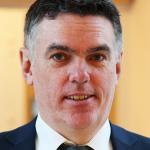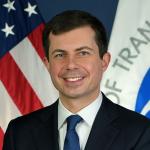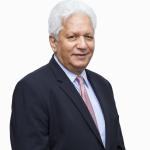Title
Meeting the road safety challenge: Halving the deaths and injuries by 2030
Ministerial Event
- lock_open Restricted participation
All countries are facing the persistent challenge of road crashes and their consequences. Around 1.35 million people are killed every year, and dozens of millions are severely injured in on-road crashes. The impact of the COVID pandemic on road safety has been mixed across countries and regions. The reduction in fatalities has been weaker than the reduction in traffic, and in some countries the number of fatalities has increased substantially as the recovery has taken place. There is, therefore, a need for a renewed focus on safety policies.
The UN’s Sustainable Development Goals contain two global targets on road safety. Target 3.6 calls for halving the number of global deaths and injuries from road traffic crashes. Target 11.2 calls for providing access to safe, affordable, accessible and sustainable transport systems for all. Road safety is critical to achieving other SDGs too, especially climate action and gender equality.
In 2021, the United Nations launched the global plan for the Decade of Action for Road Safety. The global plan is a guiding document to support the implementation of the Decade of Action 2021-2030 and its objectives, including at least a 50% reduction in road traffic deaths and injuries from 2021 to 2030. The Safe System is at the core of the United Nations Global Plan for the Decade of Action for Road Safety (2021-2030). The Safe System approach is a strategy for road injury prevention that is ‘forgiving’ and acknowledges that even though human error on the road is inevitable, death or serious injury resulting from a crash are not. The ITF has taken the lead in international efforts to develop the Safe System approach, which manages all the dimensions of road use in concert, including focusing on awareness and traffic behaviour. Effective implementation requires strong government leadership and the engagement of actors across all sectors. Road safety is a challenge for each related sector (transport, urban planning, health, environment, etc.) and should be addressed, as well, in an integrated way by the whole of government.
Funding is critical to accelerating progress, and includes both the effective use of existing funds and securing new funds. Safety needs to be prioritised in all routine road maintenance and renewals; and new financing instruments, such as road safety bonds, offer the potential to increase funding significantly. There is a need to stimulate investment not only by central government but also by local governments. There are some striking examples of central government funding to local governments in COVID-19 economic recovery packages accelerating investment.
It is important to recognise road safety as a cross-cutting issue in sustainable development, as some areas of road safety converge with other sustainable development goals. For example, making the environment safer for pedestrians and cyclists is essential to achieving the goals of sustainable modal shift and climate, as well as contributing to improving urban liveability and well-being. Most importantly, speed management is a key factor in reducing deaths and serious injuries, as well as a valuable strategy for reducing fuel consumption and noise. Speed management is at the heart of the Safe System.
In this panel, transport ministers, will discuss the Safe System approach and how it is linked to other sustainable development challenges in general, particularly those related to access to equitable, safe, and sustainable transport. The MRT will explore how synergies can be created to support a sound implementation of the Decade of Action 2021-2030.
In June 2022, the President of the UN General Assembly will convene a high-level meeting “The 2030 horizon for road safety: securing a decade of action and delivery”. In this MRT attended by transport ministers and key road safety stakeholders, the discussion of potential game-changers for the new decade 2021-2030, with a focus on practical implementation, is expected to be a stepping stone to the high-level meeting in New York. Suggested topics for discussion are listed as follows:
1. What are the biggest challenges to the implementation of the Safe System approach? How can the promotion of sustainable and healthy transportation modes (pedestrians and cyclists) be ensured despite some obvious safety challenges?
2. What is the role of government in ensuring the involvement of multiple stakeholders (e.g. transportation agencies of local and central governments; law enforcement; public health professionals; industries; civil society)? How can governments encourage and incentivise actions that contribute to road safety? How can the international community act together to achieve this?
3. What challenges do governments face in relation to road safety funding and how can governments address these challenges? What new mechanisms could be put in place to ensure stable and sustainable funding?
4. How can governments encourage action on road safety as a cross-cutting issue in sustainable development? How can governments ensure that both road safety and other policy objectives are achieved? How can governments and the international community accelerate these efforts through international cooperation?
The Summary Report for this Ministers' Roundtable is available to download here:
Speakers
Nhan Tran
Head, Safety and Mobility, Department of the Social Determinants of Health
World Health Organization (WHO)














